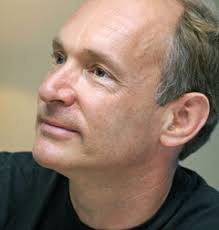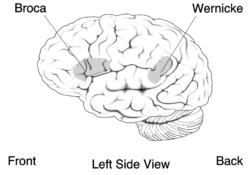 |
| Tim Berners-Lee |
Ben Zimmer describes the origin of
web to refer to the World Wide Web in an
interesting piece in The New York Times.
Tim Berners-Lee, a British software programmer at the CERN physics-research laboratory outside Geneva, came up with the term, but not without some juggling.
In 1990, writing a second proposal for his concept, he came up with the name
Mesh, “but it sounded a little too much like
mess.”
Mine of Information might seem “too egocentric” when treated as an acronym, MOI, French for “me.” The Information Mine could be seen as “even more egocentric” based on its acronym: TIM, Berners-Lee’s first name.
Finally, Berners-Lee came up with a three-word name that suitably described the global reach of the system they were envisioning: World Wide Web.
He and a colleague considered it temporary and planned to find something better. They never did.
In the original title, the three words were run together as WorldWideWeb, but they would soon separate it into World Wide Web (despite the fact that worldwide is best treated as a single word), underscoring the alliteration.
How to abbreviate the name was problematic from the beginning. “Friends at CERN gave me a hard time, saying it would never take off,” Berners-Lee wrote in his memoir, “especially since it yielded an acronym that was nine syllables long when spoken”: double-u, double-u, double-u.
“The W3 worldview is of documents referring to each other by
links,” Berners-Lee and his colleague wrote. “For its likeness to a spider’s construction, this world is called the
Web.”
That single spidery word, capitalized or uncapitalized, would bear countless offspring. The online edition of the Oxford English Dictionary catalogs some of the most common web compounds, like web address, web browser, webcam, webcast, web crawler, web developer, web design, webinar, weblog, webmaster, webmistress, web page, web publisher, web server, web site, web surfer and webzine.
Next time you fret about a writing feed,
consider: Berners-Lee declined all opportunities to profit from his immensely valuable innovation.





